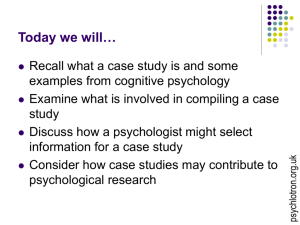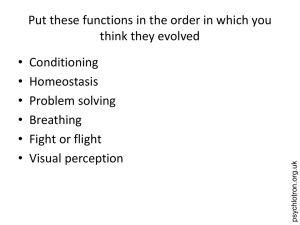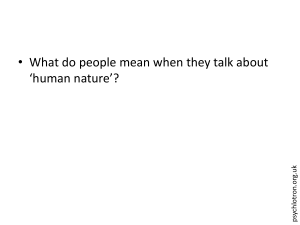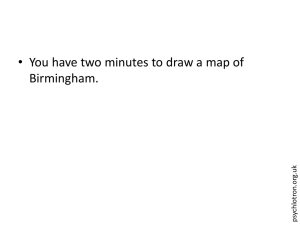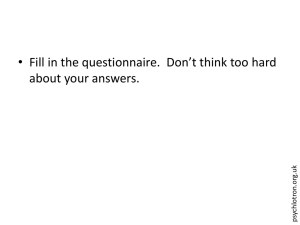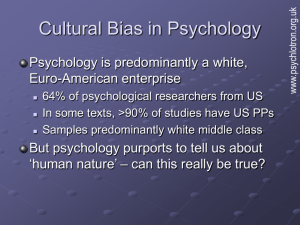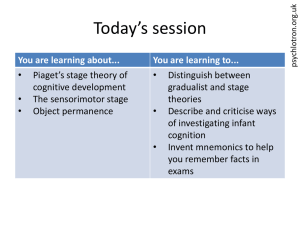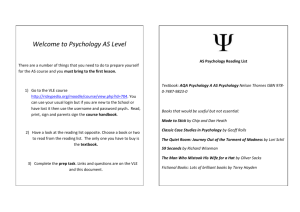How do we know things?
advertisement
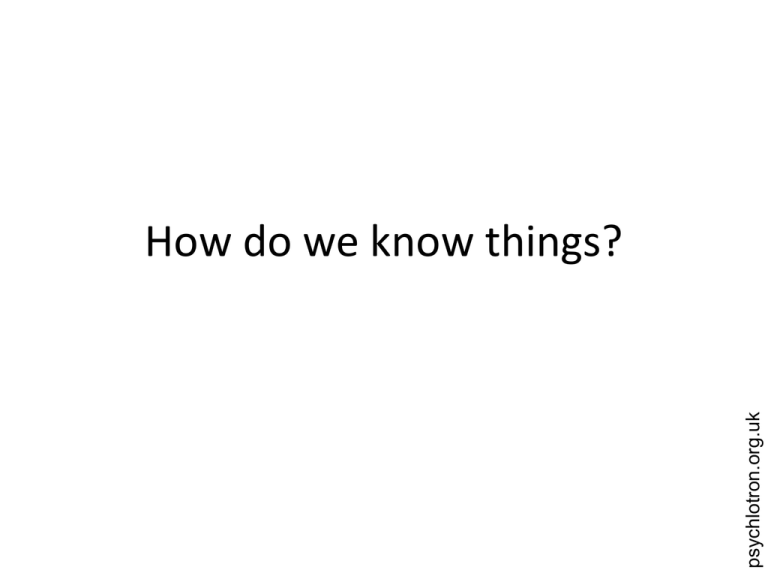
psychlotron.org.uk How do we know things? Today’s session You are learning to... • Distinguish between scientific and other ways of knowing • Distinguish between concepts central to the scientific method psychlotron.org.uk You are learning about... • Epistemology • The scientific method Ways of knowing… • Knowledge can come from: • None of these are infallible. Think of an example to show how each may lead to mistaken knowledge. psychlotron.org.uk – Authority – I am told that… – Intuition – I feel that… – Experience – I have seen that… – Reason – I have worked out that… psychlotron.org.uk • To what extent does science employ each of these different ways of knowing? Science psychlotron.org.uk • A way of knowing based on experience and reason (Kerlinger, 1973) • Authority and intuition play a role in science but ultimately must be shown to be logical (reason) and supported by empirical evidence (experience) – What roles do authority and intuition play in this statement? psychlotron.org.uk – Quantum mechanics is certainly imposing. But an inner voice tells me that it is not yet the real thing. The theory says a lot, but does not really bring us any closer to the secret of the 'old one'. I, at any rate, am convinced that He does not throw dice. – Albert Einstein Science psychlotron.org.uk • A sort of knowledge • A method for obtaining knowledge psychlotron.org.uk • Arrange the cards into separate piles and give each pile a name Elements of scientific knowledge • Science consists of… Facts – verifiable data about the world Concepts – rules that allow facts to be categorised Principles – relationships among facts & concepts Laws – principles accepted as true for all cases psychlotron.org.uk – – – – Scientific research • Remember that research aims can be: Facts and concepts Principles Laws psychlotron.org.uk – Descriptive – Relational – Causal Elements of scientific knowledge • Theories – Sets of facts, concepts and principles that allow a particular phenomenon to be described and explained – Predictions derived from theories about what will be observed under particular circumstances psychlotron.org.uk • Hypotheses Scientific research Theory Interpretation Hypothesis • Think of an example of this process from the psychological topics we have studied psychlotron.org.uk Empirical data Scientific research Paradigm dictates how theory is constructed Theory Interpretation Hypothesis Generalisation of findings Use of accepted research method Empirical data Others will attempt to replicate findings psychlotron.org.uk Peer review – validity of methods & interpretation psychlotron.org.uk • Using the criteria we have established so far, to what extent do you agree that psychology is a scientific discipline?
